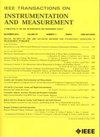Learning Task-Specific Sampling Strategy for Sparse-View CT Reconstruction
IF 5.6
2区 工程技术
Q1 ENGINEERING, ELECTRICAL & ELECTRONIC
IEEE Transactions on Instrumentation and Measurement
Pub Date : 2025-04-02
DOI:10.1109/TIM.2025.3554318
引用次数: 0
Abstract
Sparse-view computed tomography (SVCT) offers low-dose and fast imaging but suffers from severe artifacts. Optimizing the sampling strategy is an essential approach to improving the imaging quality of SVCT. However, current methods typically optimize a universal sampling strategy for all types of scans, overlooking the fact that the optimal strategy may vary depending on the specific scanning task, whether it involves particular body scans (e.g., chest computed tomography (CT) scans) or downstream clinical applications (e.g., disease diagnosis). The optimal strategy for one scanning task may not perform as well when applied to other tasks. To address this problem, this article proposes a deep learning framework that learns task-specific sampling strategies with a multitask approach to train a unified reconstruction network while tailoring optimal sampling strategies for each individual task. Thus, a task-specific sampling strategy can be applied for each type of scan to improve the quality of SVCT imaging and further assist in the performance of downstream clinical usage. Extensive experiments across different scanning types provide validation for the effectiveness of task-specific sampling strategies in enhancing imaging quality. Experiments involving downstream tasks verify the clinical value of learned sampling strategies, as evidenced by notable improvements in downstream task performance. Furthermore, the utilization of a multitask framework with a shared reconstruction network facilitates deployment on current imaging devices with switchable task-specific modules, and allows for easily integrate new tasks without retraining the entire model.学习稀疏视图 CT 重构的特定任务采样策略
稀疏视图计算机断层扫描(SVCT)提供低剂量和快速成像,但存在严重的伪影。优化采样策略是提高SVCT成像质量的重要途径。然而,目前的方法通常针对所有类型的扫描优化通用采样策略,忽略了一个事实,即最优策略可能根据特定的扫描任务而变化,无论它是否涉及特定的身体扫描(例如,胸部计算机断层扫描(CT)扫描)或下游临床应用(例如,疾病诊断)。一个扫描任务的最佳策略在应用于其他任务时可能执行得不太好。为了解决这个问题,本文提出了一个深度学习框架,该框架使用多任务方法学习特定于任务的采样策略,以训练统一的重建网络,同时为每个单独的任务定制最佳采样策略。因此,可以为每种类型的扫描应用特定任务的采样策略,以提高SVCT成像的质量,并进一步协助下游临床使用的性能。不同扫描类型的广泛实验验证了任务特定采样策略在提高成像质量方面的有效性。涉及下游任务的实验验证了学习采样策略的临床价值,证明了下游任务性能的显着改善。此外,利用具有共享重建网络的多任务框架,便于在具有可切换任务特定模块的当前成像设备上部署,并允许轻松集成新任务,而无需重新训练整个模型。
本文章由计算机程序翻译,如有差异,请以英文原文为准。
求助全文
约1分钟内获得全文
求助全文
来源期刊

IEEE Transactions on Instrumentation and Measurement
工程技术-工程:电子与电气
CiteScore
9.00
自引率
23.20%
发文量
1294
审稿时长
3.9 months
期刊介绍:
Papers are sought that address innovative solutions to the development and use of electrical and electronic instruments and equipment to measure, monitor and/or record physical phenomena for the purpose of advancing measurement science, methods, functionality and applications. The scope of these papers may encompass: (1) theory, methodology, and practice of measurement; (2) design, development and evaluation of instrumentation and measurement systems and components used in generating, acquiring, conditioning and processing signals; (3) analysis, representation, display, and preservation of the information obtained from a set of measurements; and (4) scientific and technical support to establishment and maintenance of technical standards in the field of Instrumentation and Measurement.
 求助内容:
求助内容: 应助结果提醒方式:
应助结果提醒方式:


